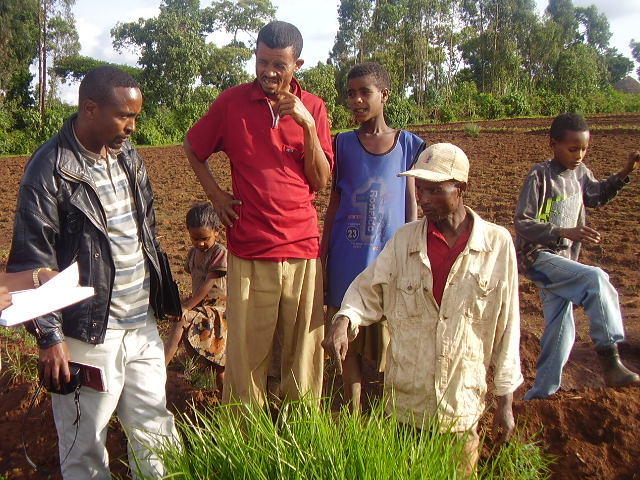10.3 Incorporating Farmer Experimentation
In general, modern agricultural science and extension has poorly understood the nature of "indigenous" and rural people knowledge. For many, what rural people know is assumed to be "primitive," "unscientific," or overtaken by development, and so formal research and extension must "transform" what they know so as to "develop" them. An alternative view is that local knowledge is a valuable and underused resource which can be studied, collected, and incorporated into development activities. Neither of these views though, is entirely satisfactory because of the static view of knowledge implied. It is more important to recognize that local people are always involved in active learning, in (re)inventing technologies, in adapting their farming systems and livelihood strategies. Understanding and supporting these processes of agricultural innovation and experimentation have become an important focus in facilitating more sustainable agriculture with its strong locality-specific nature.

Figure 14: Farmer experimentation on
Forage
The alternative is to seek and encourage the involvement of farmers in adapting technologies to their conditions. This constitutes a radical reversal of the normal modes of research and technology generation, because it requires interactive participation of professionals and farmers. Participatory Technology Development (PTD) is the process by which the knowledge and research capacities of farmers are joined with those of scientific institutions, whilst at the same time strengthening local capacities to experiment and innovate. Farmers are encouraged to generate and evaluate indigenous technologies and to choose and adapt external ones on the basis of their own knowledge and value systems.
However, researchers and farmers participate in different ways, depending on the degree of control each actor has over the research process. The most common form of "participatory" research is researcher-designed and implemented, even though it might be conducted on farmers' fields. Many on-farm trials and demonstration plots represent nothing better than passive participation. Less commonly, farmers may implement trials designed by researchers. But greater roles for farmers are even rarer.
Licensed under the Creative Commons Attribution Share Alike 3.0 License
This Learning Resource was Created by the Regional MSc AICM Program at the Haramaya University RDAE Department with Support of AgShare Project.